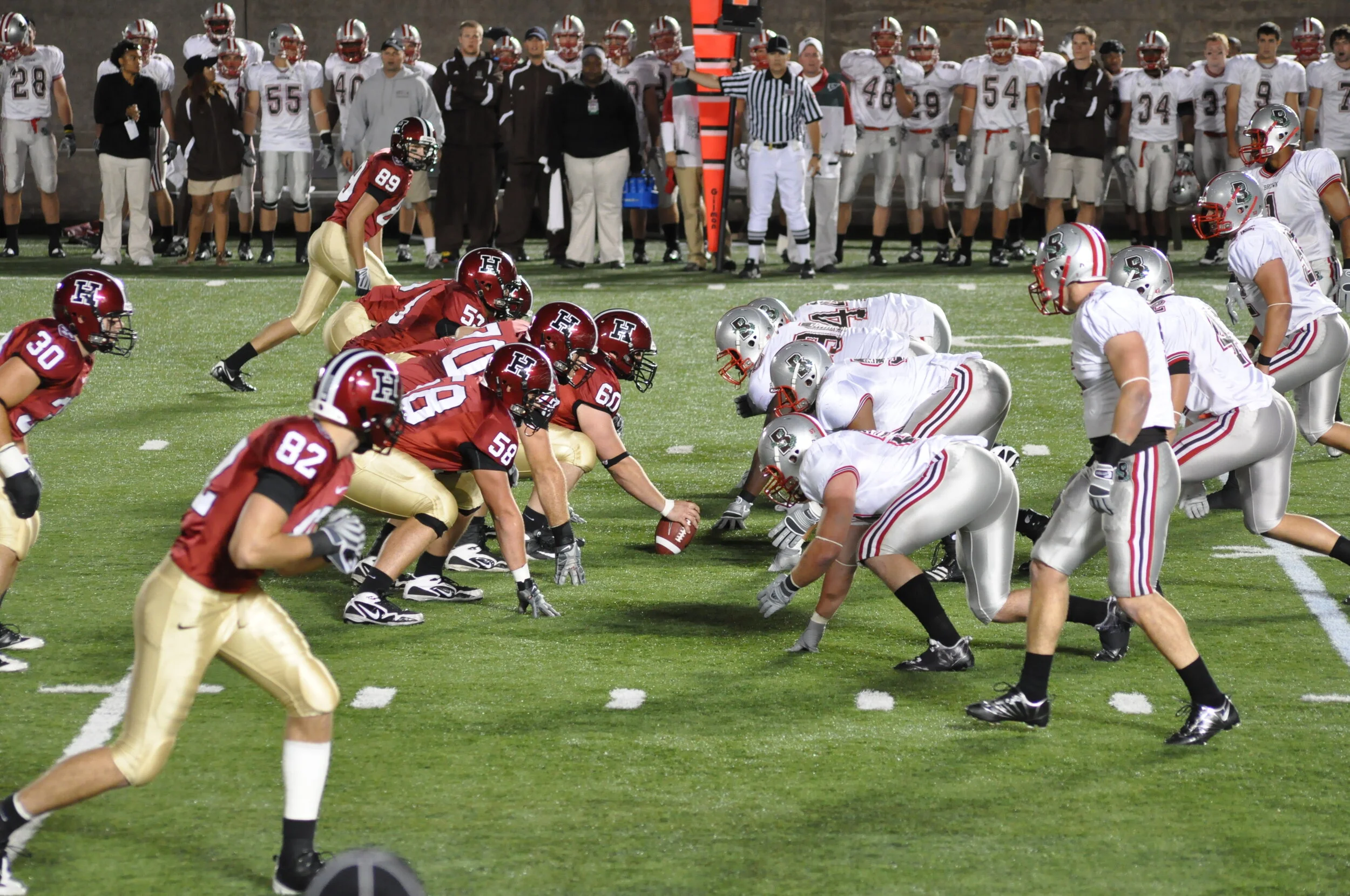Is College Football Too Big to Fail?
On Wednesday July 8th, Ivy League officials announced that fall athletics, including college football, would be canceled due to the resurgence of COVID-19 in the United States. The Ivy League was the first conference to announce the cancellation of sports, and it may lead to other conference commissioners considering taking similar measures. Coincidentally, the Big 10 conference decided to cancel all its non-conference football games on July 9th according to USA Today, a step that could lead to the cancellation of the whole season.
According to CNBC, the Ivy League will reevaluate if sports can be played in January 2021, and may consider playing fall sports such as football in the spring. However, this would be challenging to accomplish if the spread COVID-19 is still not contained. Another challenge that would be faced by the Ivy League is the willingness of student-athletes to risk their health to play college football.
Despite the fact that the Ivy League is not a major conference when it comes to college football, this decision could have a major impact on the college football landscape. In the spring, the Ivy League was the first to call off its conference men's basketball tournament, and all other conferences decided to follow suit and cancel their conference tournaments. The spark that the Ivy League set off during college basketball ended with the NCAA National Tournament and all other college basketball games being cancelled.
The “Power 5” conferences of college football are the ACC, SEC, Big Ten, PAC 12, and Big 12. Schools in these conferences generate millions of dollars of revenue in ticket sales and television contracts, and if the COVID-19 pandemic causes college football to be cancelled, schools would be facing a major deficit in their budgets. According to Forbes, college football’s 25 most valuable teams generate a combined $2.5 billion per year in revenue, and more than $1.4 billion after expenses. The majority of this money comes from ticket sales, but other revenue streams include multi-million dollar apparel contracts with companies like Nike and Adidas, lucrative television contracts, and payment from the conference itself for being a member.
Without this major source of revenue, these colleges would take a major hit to their budget, which has an impact on the students as well as the local economy surrounding these respective colleges. Since football is the most lucrative sport at the college level for many schools, it helps fund many aspects of the college such as building maintenance, coach salaries, student-athlete scholarships, and most importantly other college sports.
Each school has its own way of spending their football revenue. Some colleges choose to reward their football teams with new buildings and nice perks, while other colleges choose to use that revenue to support their other student athletes. College Sports on Campus highlights this difference by mentioning that Clemson University recently opened a $55 million facility exclusively for their football players, while the University of Michigan tends to use their money to support the other two dozen sports teams.
If the college football season does end up being cancelled, it will have a major impact on all colleges. First and foremost, schools may increase tuition to students to try to recoup some of the revenue being lost. Since coaches salaries and other fixed costs still have to be honored, schools must find the money for expenses elsewhere. Another possible solution colleges may explore to cut costs is to completely cut sports which do not bring the college high profits.
For example, Dartmouth College decided to cut five of their Division 1 sports programs on July 10th due to a tight budget. According to The Dartmouth, they will also be cutting the amount of recruited athletes by 10% each year. The University of Connecticut along with other big schools have also had to cut some of their sports programs, and this trend will only become more widespread as long as COVID-19 lingers.
Local economies would also be taking a major hit if the college football season were to be concealed or if the games were to be played without fans. At big schools such as the Ohio State University or Penn State University, college football games draw crowds over 100,000 people, which leads to increased consumer spending in Columbus, OH and State College, PA, respectively. This influx of people into college towns boosts businesses for all industries from food service to hotels. While the student bodies of schools comprise a large portion of crowds, football games at big schools are treated like NFL games where people from all over are in attendance.
With local stores already struggling to stay alive with decreased sales during the pandemic, having reduced sales during the college football season may lead to workers being laid off, and even stores having to go out of business for good. College football has become such a staple of the United States due to how much money has been invested into it over the years, and it has now become one of the most profitable businesses which helps many other businesses directly and indirectly. If the college football season were to be cancelled this year, there would be many consequences that would be felt immediately and in the long term. However, at this point in time, no decision has been made by any Power 5 conference on cancelling the entire season, so fans still have reason to be optimistic.
Works Cited
“Football Makes a Lot of Money. Where Does It All Go?” College Sports on Campus, 24 Feb. 2019, sites.psu.edu/gpintocivicissuesblog2019/2019/02/14/civic-issues-blog-2/.
Gardner, Steve. “Top College Football Matchups We Won't See in 2020 after Big Ten's Decision to Go Conference Only.” USA Today, Gannett Satellite Information Network, 9 July 2020, www.usatoday.com/story/sports/ncaaf/2020/07/09/big-ten-non-conference-football-games-canceled-2020/5408879002/.
Smith, Chris. “College Football's Most Valuable Teams: Texas A&M Jumps To No. 1.” Forbes, Forbes Magazine, 25 Sept. 2018, www.forbes.com/sites/chrissmith/2018/09/11/college-footballs-most-valuable-teams/#70de67526c64.
Young, Jabari. “Ivy League Cancels Football and Other Fall Sports Due to Covid-19.” CNBC, CNBC, 9 July 2020, www.cnbc.com/2020/07/08/ivy-league-cancels-football-and-other-fall-sports-due-to-covid-19.html.






